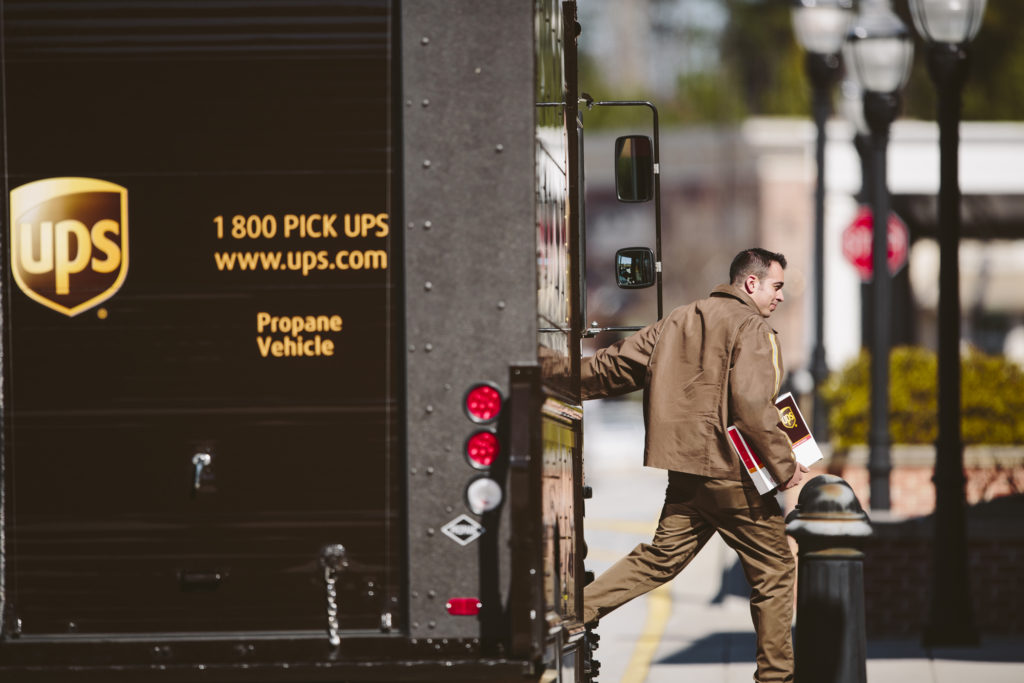UPS has followed FedEx and the US Postal Service in offering seven-day delivery. Is this the new standard? What are the implications for the post? Analysis from Ian Kerr (Postal Hub Podcast) and Marek Różycki (Last Mile Experts).
UPS will start delivering packages in the USA on Sundays next year – it currently delivers and picks up packages six days a week.
Earlier this year, FedEx made a similar announcement and the US Postal Service (USPS) already delivers parcels on Sundays – mostly for Amazon. So, is Sunday delivery the new standard in the USA? So it would seem.
USPS’s role
USPS will deliver selected UPS packages to homes, probably in less dense or hard-to-reach areas, using Parcel Select (USPS’s economical ground delivery service for packages entered in bulk), which UPS calls SurePost. USPS says the arrangement is part of its strategy to expand its shipping and packages business.
The agreement between UPS and USPS is confidential, so there is no telling how much of this volume will go to USPS. “As long as USPS is the lowest cost alternative, UPS will use them to deliver to rural and low-volume areas,” says John Callan, managing director at consultancy firm Ursa Major.
Driven by Amazon
While Sunday deliveries might help relieve capacity concerns, it’s more likely the move is the result of increased concern about Amazon’s logistics operations, which have operated seven days a week for some time now.
“With good tracking and reliable service now being consistently provided by all the carriers, it will all come down to lowest possible cost for delivery that, thanks to Amazon, consumers think is ‘free’ in the first place,” says Callan.
The new contract UPS negotiated with the Teamsters union creates a new type of driver that would work weekend shifts at a lower pay than its regular delivery drivers. A clever move ahead of the announcement of seven-day delivery? Callan thinks so: “I’m sure their plan is to move the SurePost volume to their own drivers as they build volume and density – similar to what FedEx has already begun to do by pulling their Parcel Select/SmartPost volume back inside to deliver via FedEx Ground. And, of course, Amazon is already doing the same too. In the long run, the big three will probably continue to give USPS only their difficult and high-cost rural deliveries, unless the postal service reduces Parcel Select rates across the board.”
PUDOs are in demand
To help support the seven-day delivery week, UPS is taking additional steps to meet capacity challenges, including adding 12,000 new PUDO points across the USA. UPS recently announced deals with retailers CVS Health Corp, Michaels, and Advance Auto Parts to create new UPS Access Points.
Access Points help lower delivery costs because it’s cheaper to deliver multiple packages to one location instead of singular deliveries to multiple residential addresses. First-time delivery success is also much higher as you eliminate the risk of the customer not being home.
FedEx has also been working hard to expand its own PUDO network. In June, it announced a deal with Dollar General to add 8,000 stores to FedEx’s PUDO network, bringing the network to a total of over 64,000 locations. Both UPS and FedEx plan that eventually over 90% of Americans will live within five miles of a one of their drop-off locations.
And the winner is… the customer!
Irrespective of the reason, moves by the legacy carriers to offer more customer choice is good news. Now US customers will begin to have many of the service features that are already standard in the more developed European markets. This means better customer experience and lower costs for the carriers, as parcels per stop and the on-time delivery ratio improve. A key question is how USPS will react to the new reality. The intensifying competition in the urban last mile (including on Sundays) could consign the post to being the deliverer of last resort – unless it strives to improve quality of service and the customer experience. There is also a lesson here for other posts: competition arrives in many forms, and customers expect a higher quality service than previously demanded of the post.
Ian Kerr will moderate the conference workshops PUDOs & Lockers: the New Power in the Last Mile and Social Media & Communications at Parcel+Post Expo Conference 2019. Marek Różyck will moderate the panel Intelligent Self-Service Solutions and the PUDOs & Lockers: the New Power in the Last Mile workshop.




